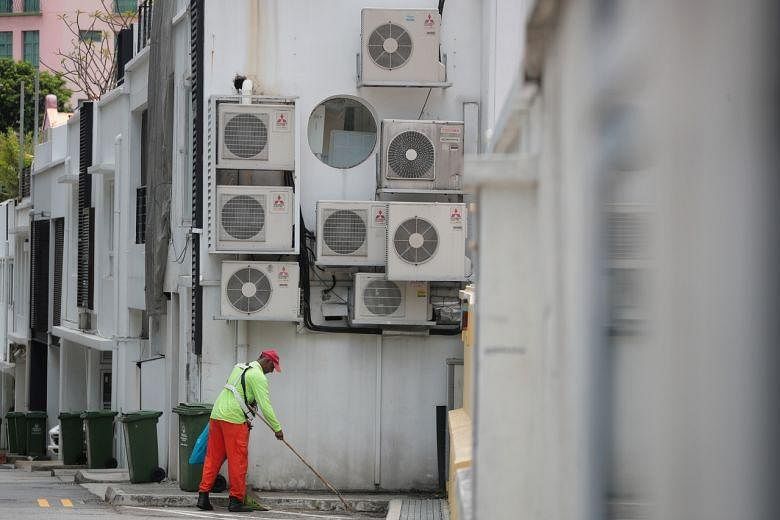It is unlikely that Covid-19 can be spread through air-conditioning, even if the virus causing the disease is airborne, said infectious diseases experts here.
Professor Ooi Eng Eong, deputy director of Duke-NUS Medical School's emerging infectious diseases programme, said yesterday that fears of a patient coughing in an office building and then spreading the virus through the air-con system have a low likelihood of being realised.
Speaking at a Straits Times webinar on Covid-19, he said that if a person expels the coronavirus into an aerosol which is then sucked into the building's air-con system, there would not be enough particles for it to be spread through the air vent.
"The entire process would have diluted the virus so much that whoever manages to inhale it would not have enough particles (in their system) to cause the infection," he added. The likelihood of viral transmission through the aerosol route is therefore rather small.
Professor Dale Fisher, a senior infectious diseases expert at the National University Hospital, said airborne transmission of the virus would not be a "major driver" of the disease, though he acknowledged that the virus can become part of a fine spray in aerosol-generating procedures such as intubating and dental work. Aerosols, defined as particles that are less than five microns in size, can in theory suspend and drift.
But compared with common airborne infectious diseases such as chickenpox and measles which have reproductive numbers, or R0s, of more than 10, the level of transmission for the Covid-19 virus, which is generally thought to have an R0 of 2.5, is not as high, said Prof Fisher.
The transmissibility of a virus in a population depends on its R0 (pronounced "R-naught").
For instance, an R0 of one means each infected person will spread the disease to one other person every serial interval, which is the duration between successive cases of transmission.
Citing a study released in pre-print on Wednesday, where scientists found that airborne coronaviruses may be infectious, Prof Fisher, who also chairs the World Health Organisation's Global Outbreak Alert and Response Network, said the viral load found in the droplets was very small and probably below an "inoculating dose", and not enough to cause disease.
Prof Ooi said that for a disease or an infection to occur, "a minimum number of viruses (have) to get into the body... However, if there are not enough viral particles that get into the airway, nothing is going to happen. So, that is why measles and chickenpox can be transmitted by the aerosol route because you need so few particles and you will still get the disease".
Therefore, reducing the risk of Covid-19 transmissions still relies heavily on measures such as mask wearing, physical distancing and good hygiene, he added.












